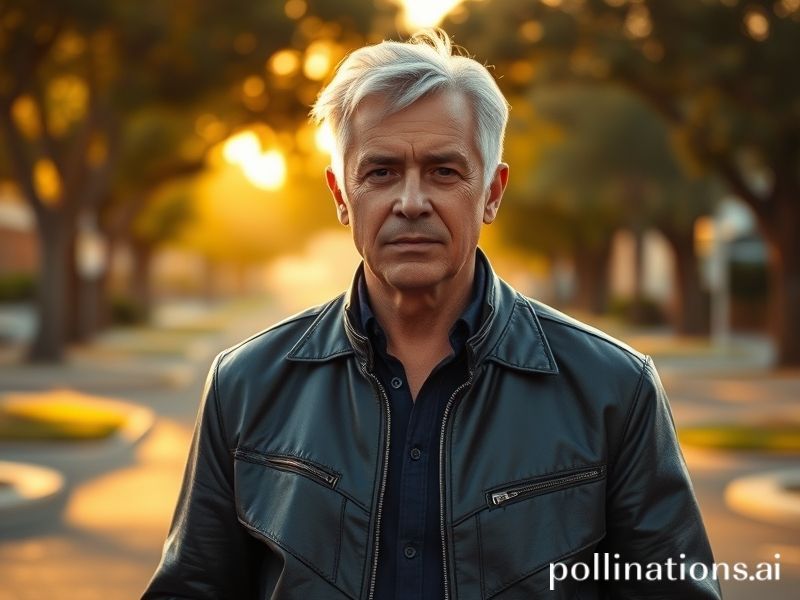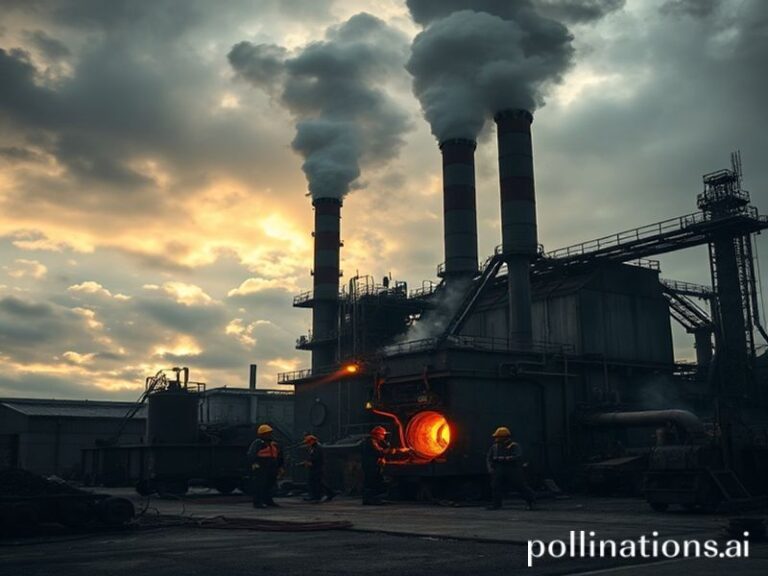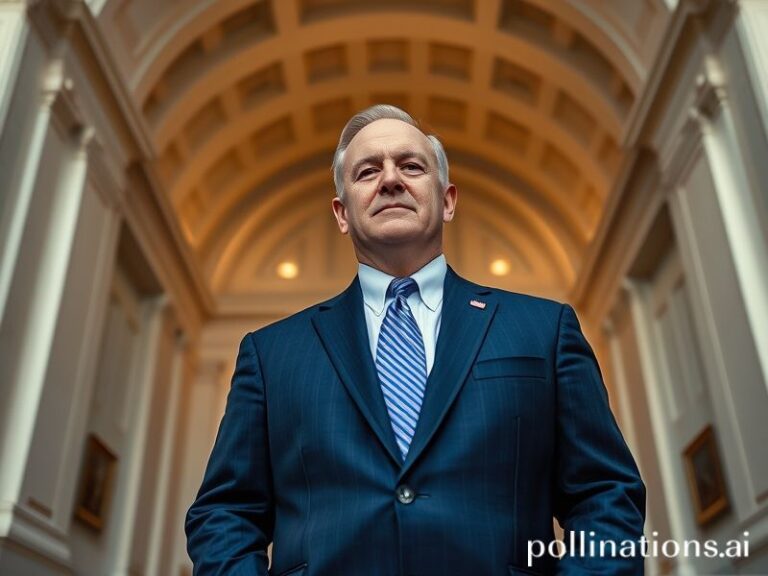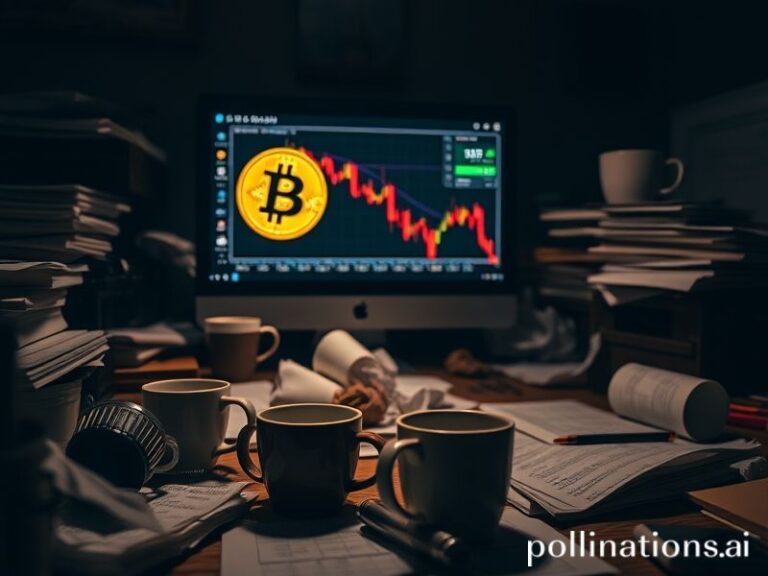Stefan Dennis: How One Aussie Soap Villain Became the Last Export the World Still Trusts
Neighbours, Nukes, and the Neoliberal Nostalgia of Stefan Dennis
By Our Foreign Desk, somewhere over the Pacific
Sometime around 1985, while Reagan and Gorbachev were trading pleasantries about mutually assured destruction, an Australian soap opera quietly exported suburban melodrama to 60-odd countries and accidentally turned a Melbourne cul-de-sac into a soft-power superweapon. At the centre of that beige-coloured revolution stood—or rather, smirked—Stefan Dennis, better known to the planet as Paul Robinson, the only man who could simultaneously evict you, seduce your spouse, and tank your share portfolio before the first ad break for canned spaghetti.
Fast-forward four decades and Dennis is still prowling Ramsay Street, now in high-definition and with a carbon footprint that would make Greta Thunberg weep into her reusable oat-milk thermos. The planet has changed: the Wall fell, the climate rose, TikTok replaced attention spans with 15-second dopamine grenades. Yet Paul Robinson abides, a Dorian Gray in a drip-dry suit, reminding us that while empires collapse and crypto evaporates, the true constant is an Australian property developer with the moral flexibility of a Goldman Sachs intern.
From an international vantage point, Dennis’s longevity is less about acting chops—though his ability to deliver lines like “I’m not the villain, I’m the opportunity” with a straight face deserves some sort of UNESCO recognition—and more about geopolitical comfort food. When the nightly news serves up yet another autocrat cosplaying as emperor, there is perverse solace in watching a familiar scoundrel limit his villainy to forged signatures and hotel arson. Paul Robinson never once threatened to annex a neighbour; he merely annexed the neighbour’s wife, which in 2024 counts as refreshingly quaint.
Diplomats stationed in far-flung embassies report that boxed sets of Neighbours remain a staple of cultural-exchange libraries, somewhere between the collected speeches of Nelson Mandela and a lonely, dog-eared Lonely Planet: Pyongyang. Why? Because nothing disarms a tense trade negotiation quite like bonding over a shared memory of Mrs Mangel’s scowl. Stefan Dennis unwittingly became Australia’s longest-serving non-military export: smoother than Shiraz, less flammable than coal, and only moderately more carcinogenic.
The economic footprint is staggering. Tourism Australia credits “Ramsay Street Pilgrimages” for roughly the GDP of a small Baltic nation, all so German teenagers can photograph a fictional letterbox. Meanwhile, Dennis’s own side hustle—crooning power ballads in hotel lobbies from Manila to Manchester—proves that late capitalism will monetise anything, including your 1989 novelty single “Don’t It Make You Feel Good?” (Answer: no, but it does make you feel something, which in this economy is close enough.)
And yet, beneath the lacquered hairline lurks a darker parable. Paul Robinson is the ghost of neoliberal aspiration: start with a corner shop, end with a multinational conglomerate, screw the casualties. Each reboot of the character is a soft-focus retcon of globalisation’s original promise—that anyone can climb the ladder provided they’re willing to set fire to the lower rungs. The fact that viewers still cheer his redemption arc says less about forgiveness than about collective amnesia. We applaud the crocodile for wearing a bowtie and forget it already ate three ex-wives and a small business loan.
As the series lurches toward its inevitable reboot, reboot-of-reboot, and streaming-only spin-off set in a dystopian co-living space, Dennis remains the constant. He is Schrödinger’s anti-hero: simultaneously cancelled and syndicated. In a world where yesterday’s war criminal can become tomorrow’s podcast host, Paul Robinson feels prophetic—an omen that villainy ages like Chardonnay if you simply refuse to leave the bar.
So here’s to Stefan Dennis: accidental cultural attaché, karaoke cautionary tale, and the last man standing on a soundstage lot that once doubled for utopia. While the rest of us doom-scroll toward oblivion, he’ll be there, raising an eyebrow and a glass of over-oaked chardonnay, reminding the globe that the end of history tastes remarkably like leftover barbecue shapes and cheap nostalgia. Cheers, mate. The cheque’s in the mail—assuming the bank hasn’t been foreclosed by a fictional tycoon we all, inexplicably, still root for.







